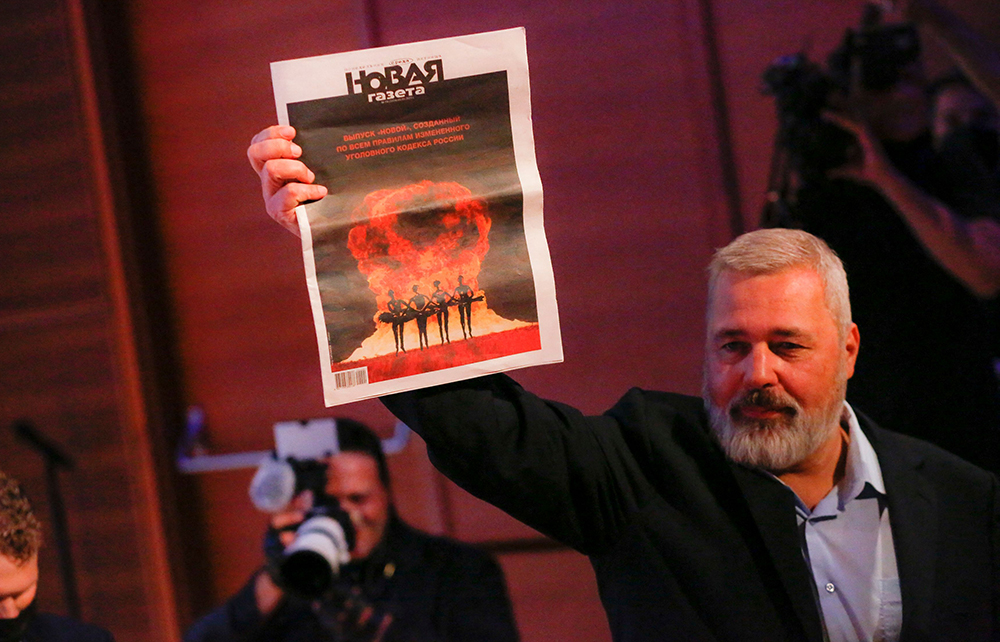Before Vladimir Putin’s invasion of Ukraine, there was a narrow but clearly defined space for Russia’s opposition media. The fearlessly anti-Kremlin Novaya Gazeta – whose editor-in-chief Dmitry Muratov was awarded the Nobel Peace Prize last year – was not only tolerated but funded by a regime-friendly oligarch at the behest of the deputy head of Putin’s presidential administration Sergei Kiriyenko. Radio station Ekho Moskvy was owned by Gazprom media but regularly aired scathing criticisms of the regime. And the independent Dozhd TV (‘TV Rain’, motto: The Optimistic Channel) continued to broadcast online from increasingly cramped Moscow offices as advertisers and landlords were pressured to pull their support. Even as the Kremlin’s lavishly funded and ubiquitous propaganda machine filled the airwaves and internet with nationalistic, anti-western vitriol, Russians interested in alternative viewpoints could still freely access independent reporting from opposition journalists in Moscow.
After the invasion, however, that space snapped shut. A law was passed in the Duma punishing the speaking of ‘fake news’ – defined as anything not confirmed in defence ministry statements – with up to 15 years in prison, instantly criminalising every opposition journalist in Russia. Novaya Gazeta and Ekho Moskvy were shut down and their staff, along with those of Dozhd and the English-language Moscow Times, fled.
Their vital function is to persuade the audience in their homeland of a different narrative to the Kremlin’s
Some Russian journalists ended up in Tel Aviv, others in Tbilisi, Georgia and Yerevan, Armenia. The Latvian capital of Riga became the obvious choice for Dozhd TV in exile as well as the newly founded Novaya Gazeta Europe. One reason was that Meduza, another independent media resource set up by former journalists from the lenta.ru news wire and funded by the exiled anti-Putin oligarch Mikhail Khodorkovsky, was already based there (its motto: ‘Make the Kremlin sad’).








Comments
Join the debate for just £1 a month
Be part of the conversation with other Spectator readers by getting your first three months for £3.
UNLOCK ACCESS Just £1 a monthAlready a subscriber? Log in